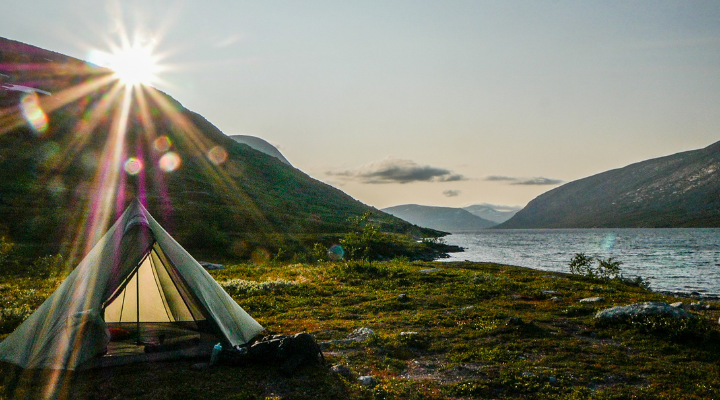
The right of public access gives us all the opportunity to enjoy nature, but it includes both rights as well as responsibilities. There are some things that you must keep in mind when you are out hiking, camping, climbing, picking berries, or exploring nature in some other way.
The right of public access applies both on land and water and the responsibilities are the same in both cases. We can walk almost everywhere on other people’s land if we don’t disturb or destroy. There are a few exceptions. We can not walk on growing crop, and we must avoid disturbing those who live in the area. Do not cross over or occupy someone’s lot. Residents have a right to be undisturbed.
Since the right of public access applies both on land and water you may swim by the shore and boat almost everywhere. It is okay to moor a boat temporarily at someone else’s jetty if it does not interfere with the owner. But not if it adjoins the ground of a house, of course. It is preferable to contact the landowner.
Protected nature areas
In national parks and nature reserves and other protected areas there may be other regulations that might restrict the right of public access. The restriction may concern the right to make fire, camp or to moor a boat.
When to ride a bike
You have the right to ride a bike both in nature and on non-public roads. The right of public access applies to everyone, so if you need an electric wheelchair or other aid you are allowed to use these as well. But motorbikes and such vehicles are not included in the right to public access.

Fire
The campfire adds spice to our outdoor life, but the right of public access does not grant you the permission to make a fire. You are allowed to make fire where there is no risk of it spreading- in dry weather the lighting of fires often is prohibited. Do not build a fire directly on or right next to rocks. They can crack, causing scars that never heal. You are allowed to pick cones and branches that have fallen to the ground for you fire. But it is prohibited to cut down trees, branches bushes, or to take sicks or birch-bark from the trees. When you are done with the fire, make sure that it is thoroughly extinguished. Leave no trace of the fire in form of a fireplace or such.
Hunting and fishing
The right of public access does not cover hunting and fishing. You are allowed to fish without a licens along the coasts and in the five largest lakes in Sweden: the Vänern, the Vättern, the Mälaren, the Hjälmaren and the Storsjön. In all other lakes you need a license to fish.
In the mountains
In the most northern parts of Sweden, where reindeer headers keep their reindeers, you must be careful, so you do not disturb or cause any inconvenience for the reindeer herders. The reindeer is a migratory animal with a need to be able to roam freely and gaze undisturbed. You are free to admire the reindeers from afar but be careful not to disturb the animals.

Camping
By all means, pitch a tent for a night or two in the countryside. Remember to pitch it in a suitable place- in other words, where farming is not carried on and not too close to a residence. If you are in larger groups with many tents, you need the landowner’s permission. The risk of damaging the nature increases when many people camp at the same place.
Because of the right of public access everyone can enjoy the Swedish nature. The most important thing to remember when visiting the Swedish nature is, don’t disturb- don’t destroy!
(Source: www.naturvardsverket.se)